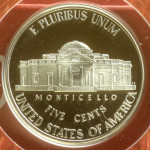We run our website the way we wished the whole internet worked: we provide high quality original content with no ads. We are funded solely by your direct support. Please consider supporting this project.

What is the Kingdom of God (Part 1)
We all know what the Kingdom of God is, right? But this is precisely the problem. Since we are all to a large extent products of our culture, what seems obviously true and right to us will be at least influenced, if not determined, by what seems obviously true and right to our culture. This, I suspect, is why the American church today Christianizes so much of American culture. We give this culture divine authority by slapping the label “Kingdom of God” or “Christian” on it.
A classic case of this is seen in the history of America at war. Instead of simply claiming America should be at war because they think it’s “just” or “in the best interest of our nation,” many Christians, especially Christian leaders, invoke God’s name. The long and bloody history of war has shown that it’s hard to motivate young people to risk getting killed and to kill others unless you can convince them that their tribal god wants them to do it and that he’s on their side. “We fight for god and country” has been the battle cry of pretty much every army throughout history.
We should expect this sort of activity from the fallen kingdoms of the world. But when Christians fuse the Kingdom of God with nationalistic tribalism, the result is catastrophic. The crucified Messiah becomes just one more typical tribal warring deity.
In the name of the one who taught us to bless those who persecute us, we engage in preemptive strikes against those who might threaten us at some point in the future. In the name of the one who commanded us to turn the other cheek when struck, we make sure that we strike their cheek first. In the name of the one who taught us to love our enemies, we bomb them. In the name of the one who was crucified for wrong doers, we crucify those who wrong our national interests.
We need to understand that this idolatrous fusion of the Kingdom of God with nationalistic self-interest is the most common form of idolatry practiced throughout church history. It’s the mindset that fueled the Crusades and the Inquisition. It’s why the history of the church is as bloody as that of any barbaric nation. The fusion of the Kingdom of God with nationalistic self-interest is diabolically tempting precisely because it seems so “obviously right” to those who are part of the nation.
I’m not here to discuss the relative merits of any war. But for God’s sake—literally—don’t pollute the holy name of the crucified Messiah by associating him with violent nationalistic sentiments! The “holiness”—the separateness—of Jesus Christ and the Kingdom he came to establish is desecrated when it’s even remotely associated with this all-too-typical, bloody, kingdom-of-the-world activity.
Before we get into what the Kingdom of God is, we must first refrain from infusing it with every personal, cultural or nationalistic sentiment we happen to feel and that seems “obviously” right to us. When we do this we delude ourselves into thinking we’re advancing the Kingdom of God when, in fact, we’re only advancing our own personal or national self-interest. We “Christianize” our cultural conditioning and become guilty of grotesque idolatry. All of this results from assuming the Kingdom of God is obvious.
The truth is that there’s nothing obvious about the Kingdom of God. In fact, if we allow Scripture to tell us something we don’t assume we already know, we’ll see that the meaning of the Kingdom of God contradicts the most “obvious” truths of our culture and every culture. As is typical, instead of giving us an abstract definition of the Kingdom of God, Scripture gives us a narrative. It is the narrative that is centered on the person of Jesus Christ.
Throughout the Gospels, Jesus is depicted as the perfect embodiment—the incarnation—of “the Kingdom of God.” When Jesus was present, Scripture shows, the Kingdom of God was present. He was, in his incarnate form, the dome in which God was king—the Kingdom of God. According to the New Testament’s story, Jesus planted the mustard seed of the Kingdom with his ministry, death and resurrection. He then gave to the Church, the gathering of all who submit to Christ’s lordship, the task of embodying, living out and expanding this unique Kingdom.
Stay tuned as over the next few days we will be exploring what this means for us as the church and for us as individuals.
Image by Thomas Hawk via Flickr
Category: General
Tags: Holiness, Jesus, Kingdom, Kingdom Living, National Idolatry, Upside-Down Kingdom, War
Topics: Following Jesus
Related Reading

The Problem with Trusting in Governments
In this clip from a recent sermon, Greg discusses the fear that drives us to reject God as King and instead trust in human kings. This is particularly relevant as we approach the presidential election here in the United States. Let’s all reflect today on who we trust to rule us. You can find the entire sermon…

How Much Is Enough?
Richard Beck over at Experimental Theology wrote a reflection on insights he gained from the book How Much is Enough?: Money and the Good Life by Robert Skidelsky and Edward Skidelsky. He points out how the advent of money changed the way we view our needs and made it easier to hoard without noticing it. It’s a…

Sermon Clip: How Christians Should Respond to Ferguson
In this clip from this weeks sermon, Greg Boyd comments on how Christians should respond to the events in Ferguson St. Louis and how that response should always be in love and to help heal both sides. The full sermon is here: http://whchurch.org/sermons-media/sermon/heart-smart-qa

The Only Thing That Matters Is Love: The Kingdom of God (Part 3)
To say that living in Calvary-quality love is the most important thing in our life is to grossly understate its importance. This stands in distinction from how we typically define the Kingdom of God. But it stands in line with the fact that Jesus is the Kingdom of God. Paul says the “the only thing…

Are You Really Saved?
When God came to rescue us through the Incarnation, the cross and the resurrection, he did a great deal more than merely provide a way for us to avoid the consequences of our sin. In other words, it is more than getting a ticket to heaven. He defeated the enemy that held us in bondage,…

Caught Between Two Conflicting Truths
In my previous blog I tried to show that adopting a “Christocentric” approach to Scripture isn’t adequate, as evidenced by the fact that people adopting this approach often come to radically different conclusions. In fact, it seems to me that the “Christocentric” label is often close to meaningless inasmuch as it doesn’t meaningfully contrast with anything. If a “Christocentric”…
